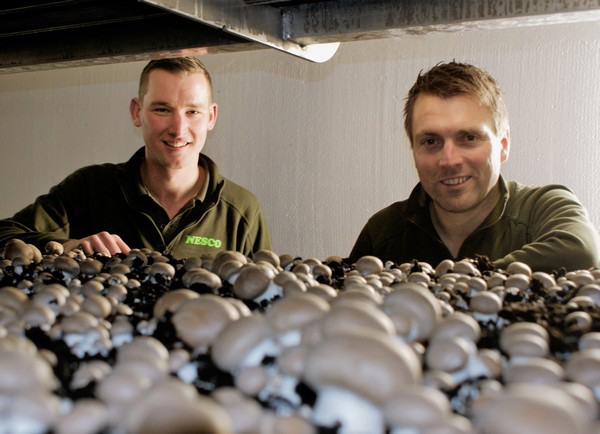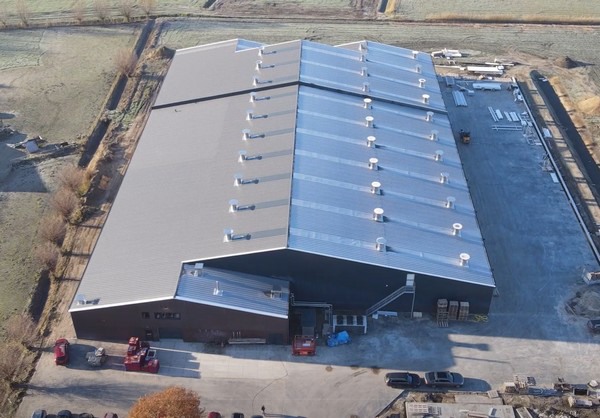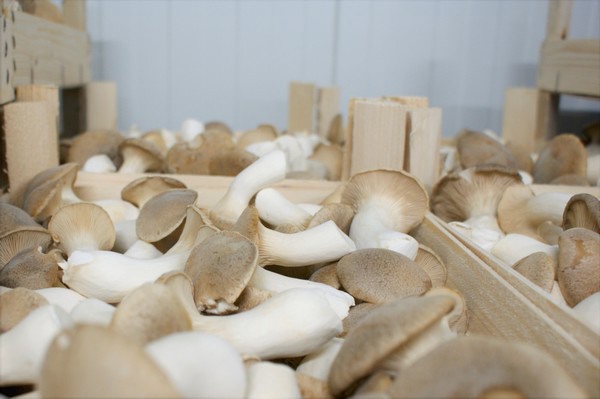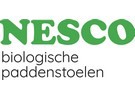"We want to sell more mushrooms to keep our packaging facility and marketing costs low," begins Jozef van den Elsen. He owns Nesco Champignons, a Dutch company that cultivates and markets organic mushrooms. However, he notes that, due to inflation, the mushrooms will have to be pricier. "That's not an easy task, but it's essential." Jozef sees conventional mushrooms have become far more expensive in the last 18 months.

"Yet, organic mushroom prices have remained unchanged, although we, too, face the same cost price increases. Raw materials, energy, transport, and packaging materials prices have skyrocketed. Nonetheless, we've managed to make very few, if any, new agreements. That's vital now, with the new round of tenders. Especially since, as of January 1, minimum wages have increased by ten percent," he says.
That is why, in November 2022, Nesco took a new cultivation site into use. According to Jozef, he invested in this upscaling to reduce his cost price and deliver directly to retailers. "We do our ingrowth and harvesting separately, so we can harvest more from the same raw material without disease or contamination issues." Jozef says automation has simplified labor, too, reducing the number of workers needed. Also, ergonomic adjustments have been made, and the new facility is energy efficient. "These measures help contain the cost increases and improve our competitive edge," he adds.

Slight decline
Nesco has also seen that organic mushroom sales have declined gradually since the summer of 2021. van den Elsen attributes that to things like forcing consumers to make choices. But he also notices that regional production is becoming more important, especially abroad. "Abroad, more growers are starting to grow organic mushrooms. We, thus, lose that market share. That's especially true in Germany, France, and Austria, where the organic mushroom category is growing much faster than in the Netherlands."
That drop in demand prompted Nesco to expand its exotic mushroom cultivation. "We used to buy most of our exotic mushrooms from other growers to sell. Now we grow them ourselves and can offer the complete organic mushroom package," Jozef explains. Besides white and brown mushrooms, Nesco also cultivates shiitake, Eryngii, and oyster mushrooms. Consumers are curious about exotic mushrooms, so that category is growing a little faster. "Eryngii, which we recently started cultivating, have become especially popular lately."

Boosting sales
It worries Jozef that organic mushroom margins are under pressure. "I think the organic product has had to take the loss, while conventional products prices are actually rising," he says, considering this a stark contrast to the government's ambitions for organic farming. "They say they want to move toward 15 or 25% organic farming, but then, something will have to happen. Dutch organic mushroom growers must have a standard earning model."
Nesco is trying to solve this issue by doing things such as boosting sales. "To realize more organic sales, supermarkets could, say, offer only organic chestnut mushrooms and more organic exotics. These are quite easy to grow organically. Plus, prices must fall to make buying organic more attractive," Jozef suggests.
Still, the mushroom grower is not disheartened. "We face challenges, but legislation and regulations show the ambition for more organic production. So something will have to be done to stimulate sales." An earning model under pressure also deters new entrants to the sector, which lags in the Netherlands. "Why would a 20-year-old enter the mushroom sector, knowing they can barely earn a living? That's concerning," admits Jozef.
For that matter, he sees the lack of growth in the sector is leading to the loss of the expertise built up in the Netherlands over the past 60 years. "That's all going overseas where there's large-scale investment in the mushroom sector because people believe mushrooms are an important source of nutrition."
Opportunities
That said, Jozef still sees opportunities in the Netherlands." Demand should recover because the price difference between conventional and organic has shrunk. Plus, organic mushrooms are ideal for growing in the Netherlands. You need only a small area to produce a lot, with few emissions. The mushroom grows on other sectors' waste streams, and we supply organic manure that can be used in agriculture and horticulture," says Jozef, explaining that they can harvest 35,000 to 40,000 kgs of mushrooms weekly at the new 5,000m2 nursery. He also considers the focus on plant-based foods to be in mushrooms' favor. "Meat substitutes are becoming increasingly trendy, and you can use mushrooms for that," concludes Jozef.
For more information:
Jozef van den Elsen
Nesco B.V.
Tel.: +31 (0)85 7731088
Tel.: +31 (0)629404559
jozef@nescochampignons.nl
www.nescochampignons.nl
